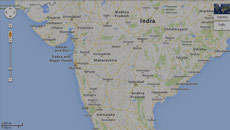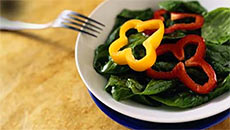Students of an engineering college in Kerala have been selected to compete in a challenge to design a rover for the US Mars exploration mission.
A team of students from the Toc-H Institute of Science and Technology (TIST) is competing in the University Rover Challenge (URC) to design and build the next generation of Mars rovers that will one day work alongside human explorers in the field.
"We are extremely happy to announce that our students have been selected to participate in the prestigious competition," said V. Job Kuruvilla, director of TIST.
"The participating team comprising five members is named CHRONOS. The team will exhibit their academic, technical and managerial skills at the competition," the director added.
Besides the URC 2014, the five-member team will also compete with students from across the world in the prestigious international aeronautical contest -- CanSat -- in the US.
The purpose of the CanSat is to mimic the functions of an actual satellite and hence involves intertwining of various fields of engineering.
The CanSat competition will be held in Texas in June, and the URC will be held at the Mars Desert Research Station in the remote barren desert of southern Utah in May 2014.
The URC is the world's premier robotics competition for college students.
The TIST is among 31 university teams in the URC that represents six countries -- the US, India, Egypt, Poland, Canada and Bangladesh -- besides teams from the Yale University, Cornell University and the Warsaw University of Technology.
It is for the second consecutive year that a team from the TIST has been selected for the CanSat, organised by the American Astronautical Society (AAS) and American Institute of Aeronautics and Astronautics (AIAA) in association with NASA, Naval Research Laboratory (USA), Ball Aerospace and Technologies Corp and PRAXIS Inc.
The five members of the CHRONOS team are: Muhammed Jabbar, P.V. Abimanyu Nair, Jibin Jose, Anoop Nayak and Joseph Stephen.





